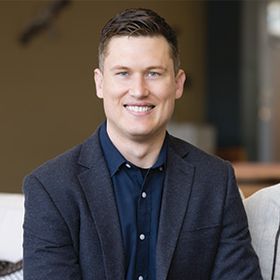People
Rowan Clarke
Rowan Clarke
“I want to have a positive impact on the world. I knew HBS would give me the opportunity to perform applied research that would do just that.”
Rowan Clarke (he/him) began his academic career at the University of Cape Town in South Africa, where he earned both a bachelor’s and master’s in economics. While working on the latter degree, he started to win research grants and connected with Innovations for Poverty Action (IPA), an economic development nonprofit, to research solar microenterprises in Rwanda. In partnership with IPA—and as a principal investigator on several projects—Rowan investigated the impact and efficacy of business development strategies in African nations. “We tracked a subset of businesses, some of which were randomly assigned to receive development funding and others that served as controls,” he explains. By analyzing the impact of investment on both the recipient business and the surrounding economy, researchers hope to better understand how best to stimulate economic growth at micro scales.
While he was already active in the research world, he wasn’t finished with his academic endeavors. “I held off on my PhD for a while, but I always knew that I would come back for it.” His advisors recommended that he apply to business schools, because they would be a better fit for a student bringing life and work experience in addition to a strong academic background. “Business schools tend to focus more on applied research, and they have close relationships with practitioners and firms. I want my work to help the world and the welfare of people, and this interconnection facilitates that type of impact.”
Rowan applied to a dozen of the top-ranked business schools in the United States; he chose HBS based on the strength of the program and the quality of the faculty. “The absolute best thing about being here is the community,” he explains. “It’s such a supportive and enriching environment.” He was also deeply interested in an institution with a demonstrated commitment to applied research. The guiding idea? “What can I do with my interests and my life that will be meaningful and make a difference?” he says. “That was the thinking that led me to my current research—and that ultimately led me to HBS.”
Research
As part of one research project, Rowan is currently collaborating with the largest FinTech company in South Africa to investigate how small and medium businesses respond to shocks. For example, rolling blackouts are causing significant power outages that are harming productivity. “What is the best way to prepare a business to weather this type of disruption?” Rowan asks. “We are experimenting with targeted finance—by analogy, you might think of the PPP loans provided by the US government during COVID.” In addition to funding, the researchers are supplying advice and guidance around how to spend the money—in this case, on solar backup or gas-powered generators perhaps.
“In addition to the tactical question of how to respond to shocks and deliver strategic economic development funding, we’re also deploying new AI-driven tools that help small businesses benefit from technology and data, or to make determinations about who to supply with finance and how much to provide,” Rowan continues. These cutting-edge approaches might look at firms’ transaction histories to improve performance or determine credit worthiness, for example, eliminating the need for collateral. “It’s very new stuff—and it’s very exciting to be part of it.”

